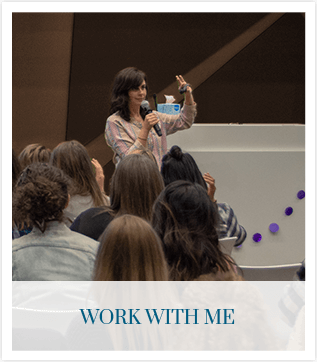Hi everyone,
I’ve been thinking a lot about the enormous stressors that our society faces, and what our roles are within these challenges (you can read “The Chisel and the Blow Torch” here).
How do we lead ourselves, our teams, our schools, our families, and our organizations with kindness, courage, and connection?
The high school where my husband has taught for nearly 20 years (and where our son will soon be a Freshman) had two “swatting” incidents in as many weeks.
Absolutely terrifying. And a national trend.
The 50 principals who are in my current Leadership Program cohort share stories of being threatened and ridiculed on social media (and in person) for things as “small” as sending kids outside on a winter day. Also a growing trend.
Hiring committees can’t find qualified candidates to fill school leadership and teaching positions. Literally, people are not applying for what (I believe) to be some of the most noble and essential professions. And you guessed it, this too is a growing trend.
Our students are heading off to schools that don’t have enough adults in their buildings to actually do the job of teaching our kids, let alone do it with the level of excellence that young people deserve (and our communities need).
Folks are exhausted, stressed, and disheartened.
Obviously, education isn’t the only industry suffering from workforce challenges and unkind behavior. But it’s the one that I’m most involved with, and that has a wide-reaching community impact.
I keep coming back to this singular thought.
“How we treat each other matters. On both an individual and a systems level.”
A cornerstone of my training and speaking work is on communication.
Communication that actually:
- connects people to each other
- builds trust
- fosters curiosity and courage
I’m worried that we’re feeling increasingly disconnected as a society. And that feeling of separation, of otherness, is making us so quick to anger and judgment.
We often don’t lead with curiosity and have stopped “listening to learn.” We struggle to trust (and sometimes with good reason) each other, and too often allow fear to be our guide.
In the case of public education, we could face a true crisis point if we continue to treat one another with such vitriol. I’m not sure that we, as a society, understand the true impact of our behaviors.
Imagine if there aren’t enough teachers and principals to have schools open 5 days a week. What would that do to our economies and communities?
So, what do we do?
I don’t have all the answers, but I’m asking a lot of questions and working hard to lead where I can influence.
- How do we meaningfully support leaders in taking care of themselves, when their jobs feel (and often are) increasingly difficult?
- How do we teach people to communicate with kindness, courage, and connection? Like, really teaching our kids, our teachers, our principals, our civic leaders and private sector folks to humanize one another?
- What is driving our fear and reactivity? And how can we build trust across divisions?
- How can we model leadership ourselves, in all areas of our lives?
I’m currently on a retreat with brilliant, women-identifying business owners – exploring our own leadership and how we show up authentically and powerfully in the world. I’m constantly asking myself the questions that I ask of my clients and you, dear readers.
We’re all doing the best we can with the skills we have. So, please, keep using your courage, your connections, and your curiosity to influence the things that matter to you.
I appreciate you for your love, support, and persistence.
xo
Sage
P.S. If you (or your organization) are interested, here are 3 ways that I can help. Please email me with any inquiries.
- “Communication for Connection: The Untaught Piece to Success” Keynote speaking on campuses, conferences, and companies.
- Leadership coaching that supports you in leveraging your strengths and building your capacity.
- Team training and development that builds trust and connection, leveraging Emotional Intelligence.
P.P.S. Here’s an article on with some data and insight on public teacher “crisis point” if you want more information.




